June 6, 2025 | 16:40 GMT +7
June 6, 2025 | 16:40 GMT +7
Hotline: 0913.378.918
June 6, 2025 | 16:40 GMT +7
Hotline: 0913.378.918
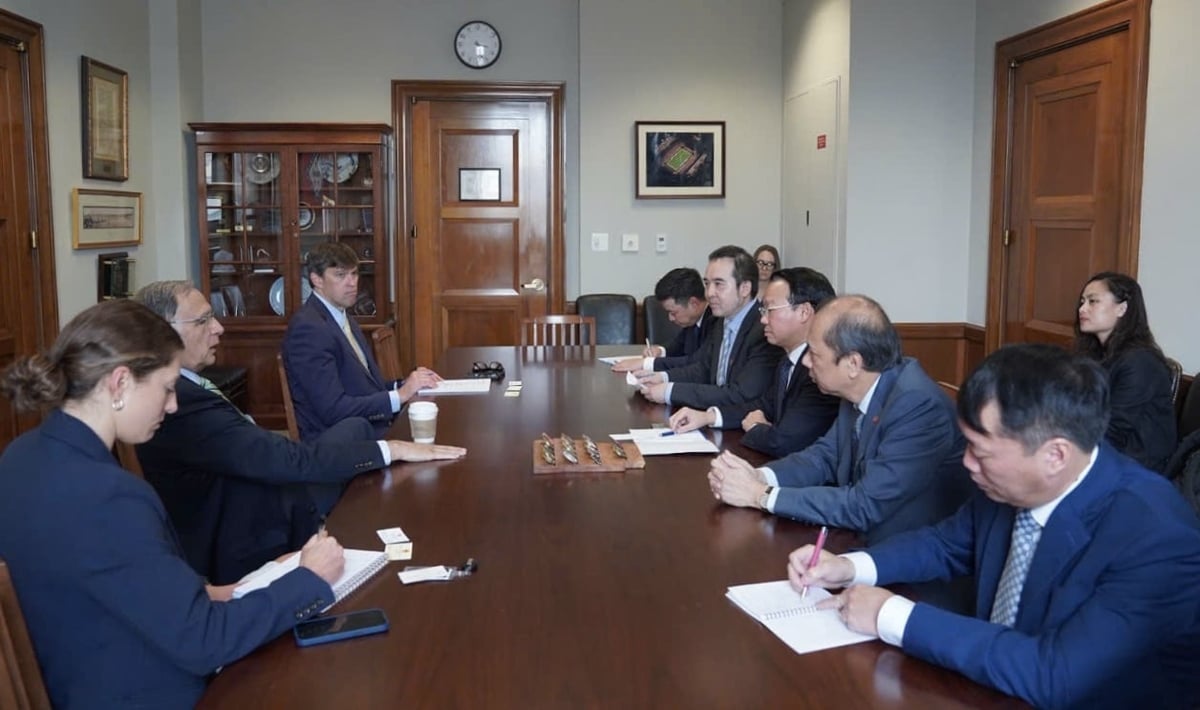
The delegation from the Ministry of Agriculture and Environment held a working session with Senator John Boozman, Chairman of the Senate Agriculture, Nutrition, and Forestry Committee. Photo: Negotiation delegation.
On the afternoon of June 5 (Washington time), Minister of Agriculture and Environment Do Duc Duy paid courtesy calls on Senator John Boozman, Chairman of the Senate Committee on Agriculture, Nutrition, and Forestry, and Representative Glenn Thompson, Chairman of the House Agriculture Committee.
These are two highly respected officials who hold significant influence over agricultural matters in the U.S. Congress. During the meetings, Minister Do Duc Duy informed the Senator and the Representative about the purpose and outcomes of the Vietnamese delegation’s visit to the U.S.
With the aim of exploring, connecting, and promoting bilateral agricultural trade opportunities, Minister Do Duc Duy led a working delegation to the U.S., which included senior officials from various specialized agencies and approximately 30 Vietnamese enterprises operating in the grain, meat, fertilizer, biological plant protection products, and wood industries. The delegation came with high hopes of further boosting imports of U.S. agricultural products.
As a result of two business forums, a series of agreements and memoranda of understanding were signed, with a total estimated value of approximately USD 1.4 billion.
At the first stop of the delegation’s U.S. trip - the state of Iowa, after meetings and discussions between Minister Do Duc Duy and local government officials, Vietnamese agricultural businesses signed four agreements worth up to USD 800 million to import agricultural products such as corn, soybeans, and meat from Iowa over the next three years.
Among them, the largest deal was a USD 320 million contract by Khai Anh Binh Thuan Company to import corn, wheat, and soybean meal.
The next stop was the state of Ohio. Here, the delegation met with the Ohio Department of Agriculture and attended a business roundtable with American and Vietnamese enterprises.
Witnessed by Minister Do Duc Duy, Deputy Minister Hoang Trung, and representatives from Vietnam’s agricultural associations, Vietnamese companies continued to sign contracts worth over USD 600 million to import corn, corn gluten meal, and soybeans from the state of Ohio.
Minister Do Duc Duy also informed the Chairmen of Senate and House Agriculture Committees that a roundtable is scheduled for the afternoon of June 6 in Washington, D.C., between the Vietnamese delegation and the U.S.-ASEAN Business Council (USABC).
Vietnamese agricultural associations and enterprises hope to conclude additional import contracts with their U.S. partners, with a projected total value of about USD 1.1 billion. If realized, these agreements would raise the total value of agricultural goods traded between the two countries to around USD 2.5 billion over the next three years.
This is an outcome that exceeds expectations and reflects the strong commitment and determination of the Vietnamese Government, the Ministry of Agriculture and Environment (MAE), and the Vietnamese business community to expand imports from the U.S., especially agricultural goods, thus contributing to a more balanced and harmonious bilateral trade relationship.
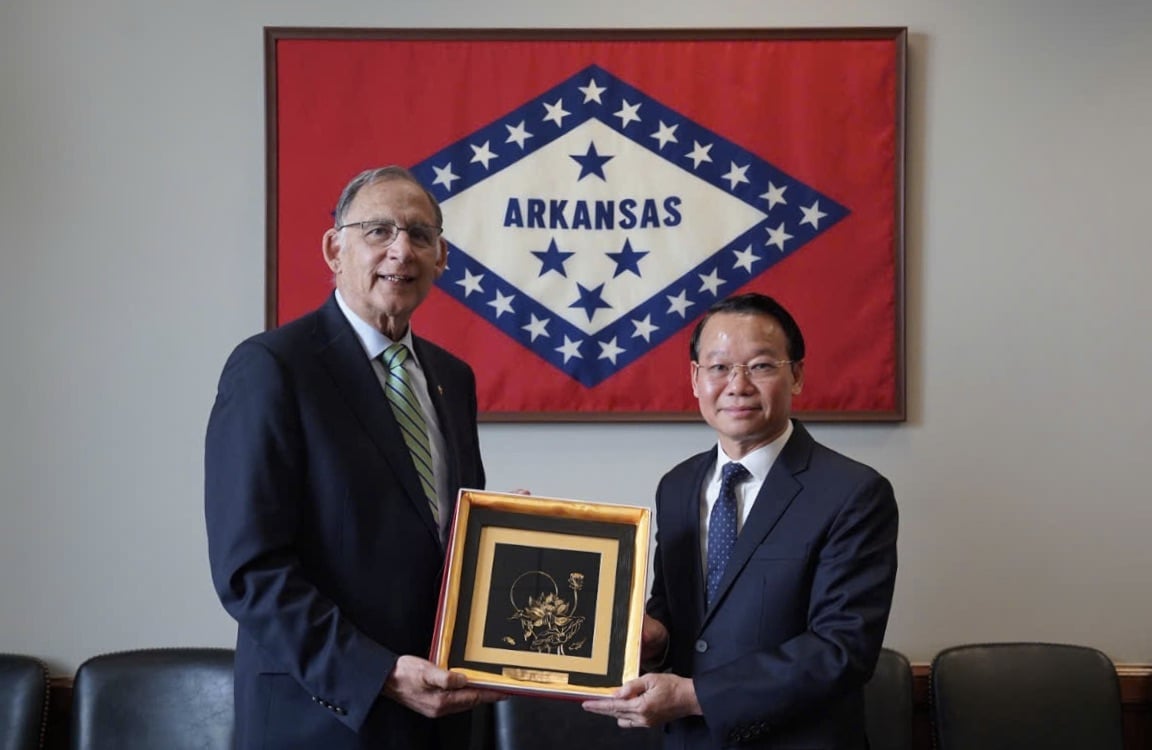
Senator John Boozman and Minister Do Duc Duy. Photo: Negotiation delegation.
Minister Do Duc Duy proposed that, in their roles as Chairman of the Senate and Chairman of the House Committee, with their personal credibility and wide-reaching influence in both the U.S. Congress and Government, Senator John Boozman and Representative Glenn Thompson continue to lead and strongly support the practical cooperation between agricultural agencies of the two countries, at both the federal and state levels.
The Minister also called on the two Chairmen to further assist and encourage U.S. enterprises and agricultural commodity associations to expand their investment and production cooperation in Vietnam, while simultaneously increasing imports of Vietnamese agricultural products.
Both Chairmen expressed enthusiasm and optimism about the notable outcomes of the Vietnamese delegation’s visit to Iowa and Ohio, as well as the upcoming high-level roundtable discussion in Washington, D.C.
Senator John Boozman shared that he had previously visited Vietnam and was impressed by the country's rapid economic growth and its long-term potential for cooperation with the U.S. He emphasized Vietnam’s role as a reliable and dynamic economic partner in the Asia-Pacific region.
The Senator expressed his support for the two countries working toward a fair trade agreement, and affirmed that he would convey Vietnam’s recommendations to the relevant U.S. authorities.
For his part, Representative Glenn Thompson showed particular interest in the high-value agricultural contracts that were recently signed. He expressed confidence in the prospects for deeper agricultural cooperation between the two nations and noted that the U.S. Government should promptly review and appropriately address concerns related to proposed tax policies on goods originating from Vietnam.
He also spoke positively about Vietnam’s recent decision to commercialize genetically modified crops, considering it a proactive move toward global integration and a clear signal of Vietnam’s determination to modernize its agriculture sector.
Both lawmakers expressed strong support for enhancing comprehensive agricultural cooperation not only between government agencies but also among research institutes, universities, and the broader academic communities of both countries.
The two U.S. Congressional leaders warmly invited Minister Do Duc Duy to visit their home states of Arkansas and Pennsylvania, which are major agricultural hubs of the U.S., with the aim of further expanding opportunities for investment and partnership.
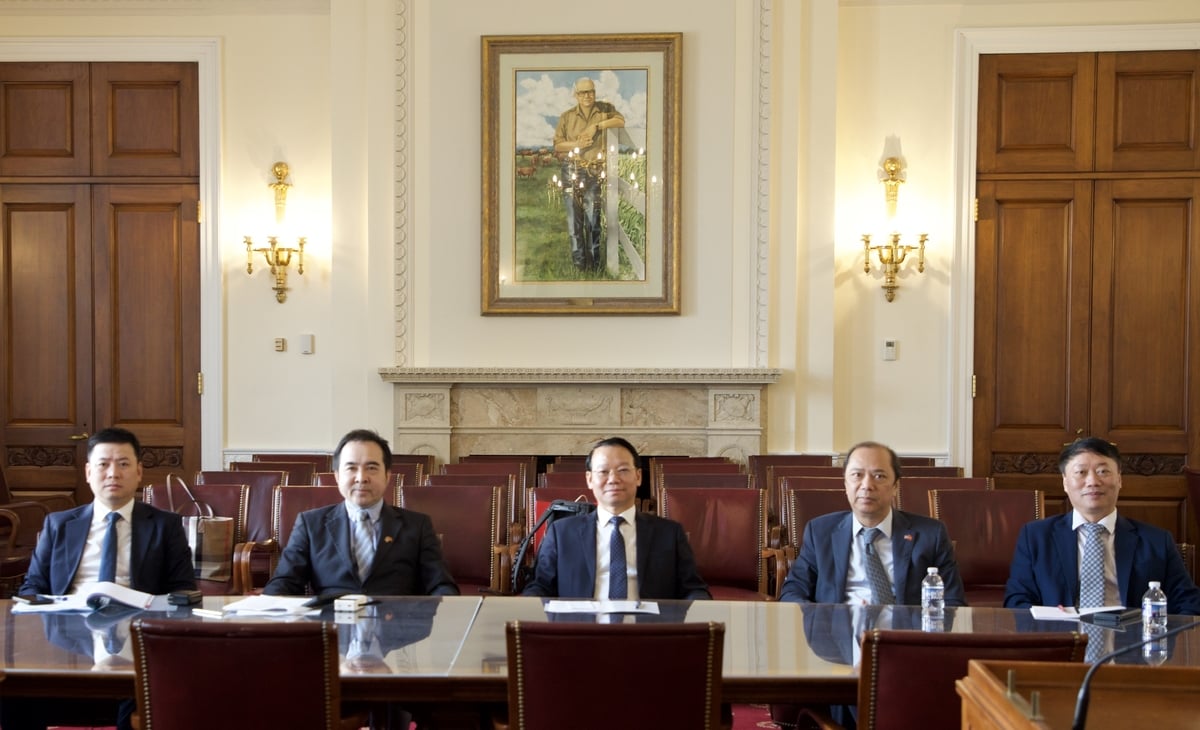
Minister Do Duc Duy led the negotiation delegation of MAE to the U.S. Photo: Negotiation Delegation.
During the meeting, Minister Do Duc Duy formally presented proposals to U.S. Members of Congress.
Minister Duy noted that both Vietnam and the U.S. have strengths in agriculture, but are not direct competitors. On the contrary, the two countries can become complementary partners that support each other’s development. He highly praised the remarkable level of advancement and innovation in U.S. agriculture, particularly its world-renowned productivity and quality.
“Vietnam’s agriculture has only recently made significant strides, and we urgently need access to high-quality agricultural inputs, especially superior crop seeds and livestock breeds,” the Minister stated.
According to him, Vietnam also seeks to import modern agricultural machinery, particularly cutting-edge technologies developed in the States. Given these complementary characteristics, the two nations’ agricultural sectors are well-positioned to grow together without creating competition or threatening each other’s interests.
In practice, Vietnam’s demand for agricultural imports is on the rise, especially for products where domestic supply is still insufficient. This trend is clearly reflected in the steady 10% annual growth in bilateral agricultural trade over the past decade. The figure underscores the sustainable demand and productive synergy between the two nations.
Amid a volatile global environment marked by conflict and extreme weather, global food security has become an urgent issue. In this context, agricultural cooperation between Vietnam and the U.S. carries strategic significance not only for both countries but also for the stability of global food supply chains.
In recent years, MAE has facilitated market access for U.S. producers in Vietnam. To date, Vietnam has completed registration procedures for 509 U.S. meat and meat-product processing facilities and 232 seafood exporters to enter the Vietnamese market.
Notably, Vietnam is also among the first eight Asian countries to approve the import and use of genetically modified crop varieties. So far, it has approved all 61 biotechnology product dossiers submitted by U.S. companies. Moreover, as of April 1, 2025, Vietnam has reduced import tariffs to 0% for most U.S. corn and soybean products.
Vietnamese agricultural importers accompanying Minister Do Duc Duy on the working trip expressed optimism about the future of bilateral trade cooperation, aiming toward a stable, sustainable, and beneficial partnership.
These businesses hope the two sides will soon move forward with signing trade agreements that include appropriate tariff policies, taking into account Vietnam’s status as a developing country. A more open trade policy would help strengthen agricultural supply chains and mitigate the risk of disruption amid unpredictable global market fluctuations.
Translated by Kieu Chi
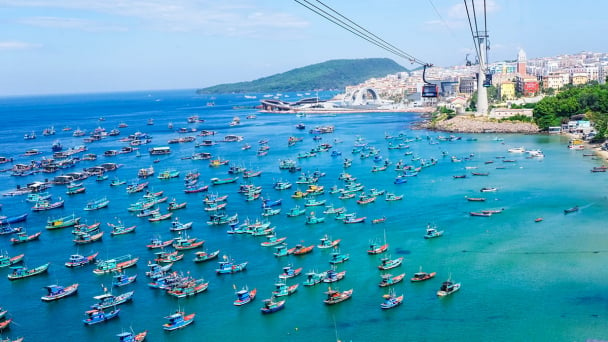
(VAN) Vietnam Sea and Island Week 2025 is a powerful call to action for connecting technology and unlocking policies, aiming towards a modern, sustainable blue ocean.
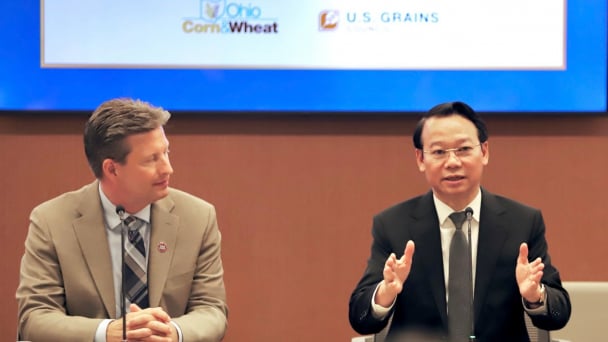
(VAN) With its rapidly growing agricultural economy, Vietnam has become a top destination for U.S. businesses seeking to strengthen their presence in Southeast Asia.
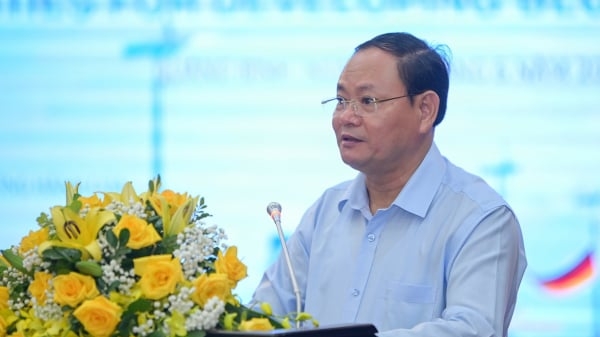
(VAN) The workshop in Quang Binh is expected to pave the way for developing a blue ocean economy, driven by institutional reforms, planning, and policies such as Decree 65 on offshore wind power.
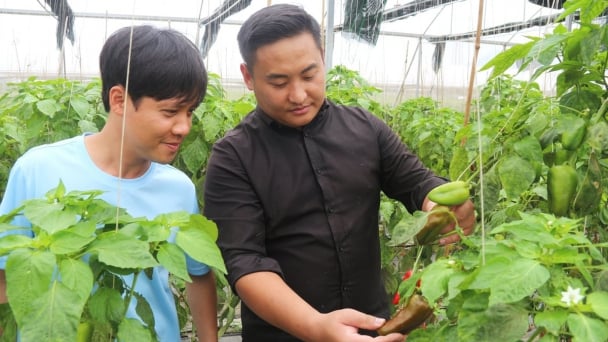
(VAN) By applying science and technology and embracing natural farming practices, Dako Farm’s agricultural products meet the stringent standards required for export to the South Korean market.
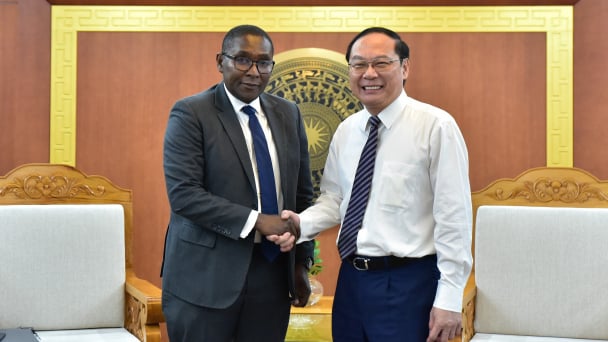
(VAN) The United Nations acknowledges Vietnam's efforts and pledges to support investment in restructuring the energy system in an efficient and sustainable manner.
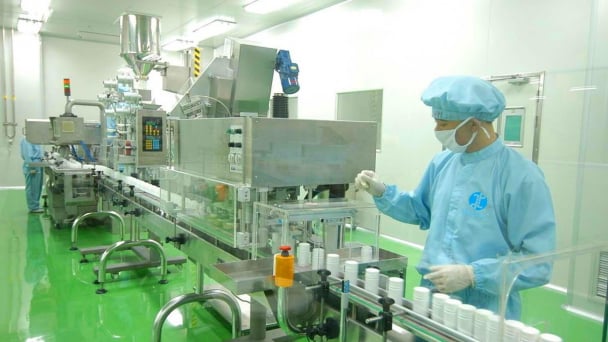
(VAN) With the EU's carbon tax taking effect in 2026, many Vietnamese enterprises are compelled to transition to cleaner technologies, or else face exclusion from the global supply chain.